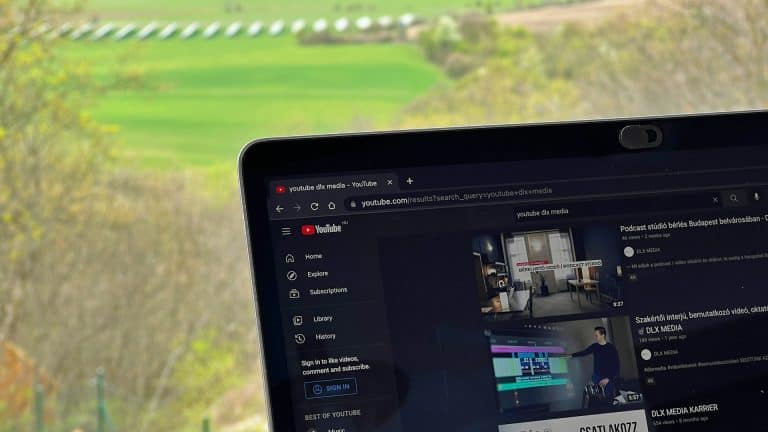9 Tips to Avoid CRO Keyword Cannibalization

Share The Love:
Are you struggling with CRO keyword cannibalization? If so, you’re not the only one. Businesses in every niche face this challenge every day. We create new content and fail to keep track of previous keywords, resulting in lower visibility and conversion rates.
But fear not. We have the solution for you. With nearly 95% of all keywords receiving less than 10 searches per month, you need to monitor Google rankings continually. This post shares nine strategies to help you avoid CRO keyword cannibalization and maximize your website’s performance.
From conducting thorough keyword research and mapping to implementing proper on-page optimization techniques, we’ll guide you step-by-step toward achieving better search engine rankings and increased conversions.
So, if you’re ready to fix keyword cannibalization and optimize website performance, let’s dive in.
AFFILIATE DISCLAIMER: As an affiliate, I may receive a commission on any purchases made through the links provided. I only promote products and services that I believe provide value and guarantee honest opinions in my reviews.
What is CRO Keyword Cannibalization?
What exactly is CRO keyword cannibalization? CRO stands for Conversion Rate Optimization. It refers to increasing the percentage of website visitors who take a desired action. Keyword cannibalization means two or more relevant pages on your site compete for the same search queries on a search engine.
When all your web pages rank at the top, it’s all good. But what happens when your keyword rankings start to tank? That’s when this becomes a problem. Search engines like Google, Yahoo, and Bing struggle to decide which content should rank higher, so they prioritize competitors who nail the search intent.
For example, having two pages on your website target the same keyword ‘content optimization’ could cause your traffic to suffer as it gets divided across multiple pages. To overcome this issue, you would need to delete the underperforming page or consider combining relevant pieces of content to boost overall performance and streamline your SEO efforts.

Why Eliminating Keyword Cannibalization is Important
Why should you prioritize eliminating keyword cannibalization? Let’s explore the importance. When you fail to utilize SEO tools for analysis or conduct keyword audits, you may overlook the signs of cannibalization on your website.
One clear sign is when you have multiple pages targeting the same keyword and search intent, leading to overlapping content and topics. Not only does this confuse the search engines, but it also creates a poor user experience.
The negative impacts of keyword cannibalization can be decreased search engine rankings, higher bounce-rates, and reduced conversion rates. To identify posts that target the same keywords, you must address this issue head-on.
Top Strategies to Prevent CRO Keyword Cannibalization
Okay, time to dig in. Here are the top strategies to boost search engine visibility, enhance user experience, drive conversions, and eliminate future headaches.
1. Use Keyword Mapping For Planning

Keyword mapping and planning are the first steps you should take when optimizing your website for search engines. It involves assigning a specific keyword to each page and organizing them into clusters, creating a structured website.
Google ranks based on URLs, so optimize each URL for the target keyword. Keyword mapping also aids in content creation by helping you group semantic keywords logically. To get started, conduct thorough SEO keyword research to identify relevant terms for your website.
Then, group these keywords into thematic clusters based on user intent and topic relevance. Thankfully, tools like STAT make this process easier. It allows you to create custom keyword segments effortlessly.
Implementing tools like this will ensure each page has a unique primary keyword without jumping back and forth on the Google Search Console and wasting time and effort.
2. Consolidate and Optimize Your Content
To boost your website’s performance, focus on content consolidation and optimization. Start with a thorough content audit to identify multiple pages targeting the same keywords. Identifying keyword cannibalization will help you analyze performance and uncover improvement opportunities beyond SEO.
It considers your business impact and provides insights to enhance your website and content strategy. If you discover keyword cannibalization, remove outdated, duplicate, low-quality, or irrelevant content that harms SEO rankings, user satisfaction, and brand reputation.
It’s your decision whether to merge multiple pages into one comprehensive piece or use 301 redirects for ranking consolidation. Whichever route you choose, review and improve existing content for high quality, relevance, and unique value.
The strategic use of on-page SEO techniques, relevant keywords, and internal linking strategies helps Google crawlers index and rank each post faster. So, strive for consistency and create optimized content for better search results and more traffic.
3. Implement Redirects and Canonical Tags
To optimize your website’s structure and prevent SEO cannibalization, you must understand the role of redirects and canonical tags. Canonicalization allows you to designate a main page, ensuring that Google only ranks a specific URL in its search results.
This process prevents duplicate or similar pages from competing against each other and splitting SEO authority. Along with canonicalization, spend time differentiating between 301 redirects and canonical tags. A 301 redirect is an HTTP status code that permanently redirects users from an old URL to a new one.
Implementing 301 redirects preserves SEO authority during website restructuring. Canonical tags, on the other hand, indicate the preferred version of a page to search engines. Effective handling of duplicate content scenarios involves utilizing strategies, tools, and plugins that simplify the implementation of redirects and canonical tags.
Regular monitoring of redirect health and tag usage ensures the continued success of your SEO efforts, preventing keyword cannibalization while maximizing website visibility and organic traffic.
4. Utilize Siloing and Structured Site Architecture
Siloing and structured site architecture help optimize your website for search engine optimization (SEO). Content silos, which involve organizing your website’s content around target keywords, can significantly enhance your SEO efforts.
When you group related and relevant content into distinct sections, you create a clean and organized structure that allows users and search engines to navigate your site easily. Doing so improves user experience and helps search engines crawl, index, and rank your website more effectively, preventing CRO keyword cannibalization and ensuring maximum visibility.
Implementing internal links within these silos further guides users through the relevant content. To maintain a logical and user-friendly site structure, consider using tools and plugins that assist with structuring your site for optimal rankings in the search results.
RankMath and SEO Ultimate Pro are two great, affordable options. If you embrace siloing and structured site architecture, you can prevent SEO keyword cannibalization and boost your website’s overall success.
5. Regularly Audit and Maintain Published Content
Content auditing and maintenance involves cataloging and analyzing all the content on your website, including its performance. If you don’t practice this consistently, consider establishing a regular schedule for content audits. It will force you to be proactive and allow you to identify strengths, weaknesses, and opportunities faster.
To effectively plan and coordinate your content creation efforts, content calendars come in handy. They ensure a consistent flow of engaging material that resonates with your audience. User feedback and analytics provide valuable insights that inform your content decisions, allowing you to align your strategy with what works best.
During audits, you must identify and promptly address any issues to prevent CRO keyword cannibalization and maintain the organization of your website’s content. Additionally, implementing content planning tools for keeping your content fresh and up-to-date helps you deliver relevant information to your audience.
6. Differentiate Your Content
Content differentiation requires a deeper understanding of your target audience and addressing their intent, aspirations, and goals. Simply being similar to others won’t cut it. To differentiate your site effectively, craft a unique value proposition for each page and piece of content. Diversify your content formats, incorporating text, video, and infographics to engage users and cater to different preferences.
When appropriate, utilize the power of storytelling and personalization to create a memorable and impactful experience within the article. Storytelling enhances the user experience and aligns with SEO best practices. Creating enjoyable and engaging blog posts increases your chances of ranking high in search queries.
Once you identify a target keyword, create clusters that balance differentiation and content creation strategies. Doing so will ensure your content is discoverable and increase user engagement. Avoid CRO keyword cannibalization by carefully planning and optimizing each category page and post to maximize future impact.
7. Monitor User Behavior

Monitoring user behavior will help you analyze and identify patterns in engagement and conversions. Tracking daily, weekly, and monthly activity positions you to easily spot trends and make data-driven decisions.
User behavior data also helps identify keyword cannibalization issues. It provides insights into how users interact with your pages and affects your relevancy rankings. To improve content and navigation with user feedback, implement these two strategies.
First, be active when responding to user feedback by addressing concerns and suggestions. Second, conduct user surveys to gather qualitative insights. Additionally, A/B testing landing pages enables you to understand user preferences and optimize your content accordingly.
With the Google Search Console and other marketing tools, you can monitor user behavior and change keyword strategies in minutes rather than months. Make this step a habit, and you’ll be able to enhance the user experience, prevent CRO keyword cannibalization, and drive better results for your website.
8. Perform Regular SEO Audits
Performing SEO audits is required if you want to compete in the Google SERPs. Without them, you may not understand the competition’s SEO strategies, and it will be hard to keep up with and eventually surpass them in the search results. Missing out on search terms your competitors are ranking for means missing out on valuable opportunities.
Fortunately, tools such as Ahrefs make it easy to conduct keyword research. It allows you to uncover insights and gain the competitive edge necessary to drive traffic. Strong competitors will likely rank for targeted keywords you don’t, but with the right tools, you can identify gaps and opportunities to leverage and improve your rankings.
With a comprehensive technical SEO audit, you can assess your website’s health and performance and identify any technical issues that may contribute to cannibalization. Keep an eye out for duplicate topics, articles that target the same search intent, and repetitive content. Review your meta descriptions and heading tags to spot potential cannibalization and take necessary actions.
From this point forward, conversion rate optimization is your primary goal. So, use your audit findings to address any issues and optimize your site’s performance. Regular SEO audits are vital for staying ahead of the competition and driving organic traffic to your website.
9. Prune Your Content
To maintain a high-quality website, prune your content periodically. Be proactive to identify posts that target the same keyword, and remove low-quality or outdated content. To make informed decisions about whether to remove pages, check the traffic statistics, conversion rates, and search results.
Deleting outdated content enhances user experience and bolsters your brand’s reputation. But don’t start swinging the hatchet just yet. Evaluate each post before you delete it and ensure all content remains accurate and up-to-date.
However, if the content in question still ranks, consider implementing improvements or utilizing a 301 redirect to preserve its value. Throughout the content pruning process, focus on user experience and internal links to maintain high engagement levels and satisfaction.
As a general rule, content pruning directly impacts SEO performance and site load times. Underperforming posts are dead weight that drags your domain authority down. So, check your site’s analytics and prune as needed. Doing so will prevent CRO keyword cannibalization and increase your rankings. As they say, a rising tide lifts all boats, and pruning can do just that.
Future Proofing Your Site From CRO Keyword Cannibalization

To ensure your website is future-proofed against CRO keyword cannibalization, taking proactive measures is a no-brainer. One effective method is to outsource SEO audits to professional services.
By doing so, you can benefit from a comprehensive website analysis, uncovering potential cannibalization issues and identifying areas for improvement. Working with experienced SEO professionals brings invaluable expertise and tailored strategies to prevent keyword cannibalization.
Ongoing education is also essential in the ever-evolving field of SEO. Consider upgrading your skills through training resources, courses, and certifications. Platforms like Skillshare and Udemy offer a wide range of SEO training options, keeping you up-to-date with the latest trends and techniques.
Expert Tips For Identifying Keyword Cannabilization

I prefer using SEMRush, Google Search Console, or Google Search to identify duplicate pages or posts that target the same keywords. Use the following to make the process easier.
Semrush’s Cannibalization Report
This tool analyzes a user’s position on Google for possible cannibalization of keywords and phrases. It is an important part of the Cannibalization Report. You can start by entering a name and clicking the button Setup tracking.
Choose a location for ranking. Finally, select “Continue with Keyword”. Add your targeted keyword. You can add keywords to Google Analytics using this option.
It can be imported from other sites or retrieved by Semrush using keywords. How do I find the right keywords? Click “Add keywords in campaigns” / “Start monitoring” It’ll be finished soon.
Search your site on Google
It may also be possible to find the cause by looking at a category page or post directly on Google. Search terms for relevant pages using the browser.
Discovering keyword cannibalization manually using this method may be time-consuming and Google might not find all results.
Although using SEMRush or search engine optimization software is an easier solution, identifying keywords is possible using this method.
Rework Internal Linking
This approach is less successful than the options mentioned above but it helps minimize the problem. Smart internal links mean implementing a link to redirect visitors to another website page or webpage.
If your website links to canned sites, redirect them to your primary site. It would give them extra weight and Google would see them as more crucial.
Check out the text on the anchors. Links involving anchors with keyword substitution may lead to incorrect page ranking of the queries in this search.
Wrapping Up
In conclusion, by implementing these effective strategies to avoid CRO keyword cannibalization, you can safeguard your website and drive better results.
Plan your content strategically with keyword mapping, optimize it for improved performance, and use redirects and canonical tags to prevent duplication issues.
Don’t forget to audit your published content to keep things fresh and relevant. With these measures in place, you’ll be on the path to success in maximizing your website’s full potential.
Frequently Asked Questions
What are the common causes of CRO keyword cannibalization?
The common causes of CRO keyword cannibalization include improper keyword targeting, lack of proper site structure and organization, duplicate content issues, inconsistent internal linking, and poor URL structure.
What are the signs of keyword cannibalization on a website?
Signs of keyword cannibalization may include lower organic rankings, decreased organic traffic, indexing issues, and a drop in overall website performance.
What are the negative consequences of keyword cannibalization on a website’s performance?
Keyword cannibalization can have several negative consequences. It can dilute the authority of your pages, confuse search engines about which page to rank for a specific keyword, lead to lower rankings and less visibility in SERPs, decrease organic traffic, and diminish the user experience on your website.
Can keyword cannibalization be a problem for e-commerce websites?
Yes, keyword cannibalization can be a problem for e-commerce websites. Due to their nature, these websites often have similar or overlapping keywords across multiple pages. That leads to confusion for search engines, lower rankings, and reduced organic visibility for product pages.
How often should I conduct keyword audits to prevent cannibalization?
Cannibalisation SEO audits should be conducted at least once every six months. However, the number of posts you publish may merit an increase. However, the number of posts you publish may merit an increase. If you continually update content, perform one every month. Regular audits will help identify and fix keyword cannibalization issues promptly, ensuring optimal keyword targeting and website performance.

Ken Jones
Ken empowers small business owners and entrepreneurs to scale productivity through innovative content creation, strategic planning, and cutting-edge technology. He’s passionate about helping businesses thrive in the digital age.





